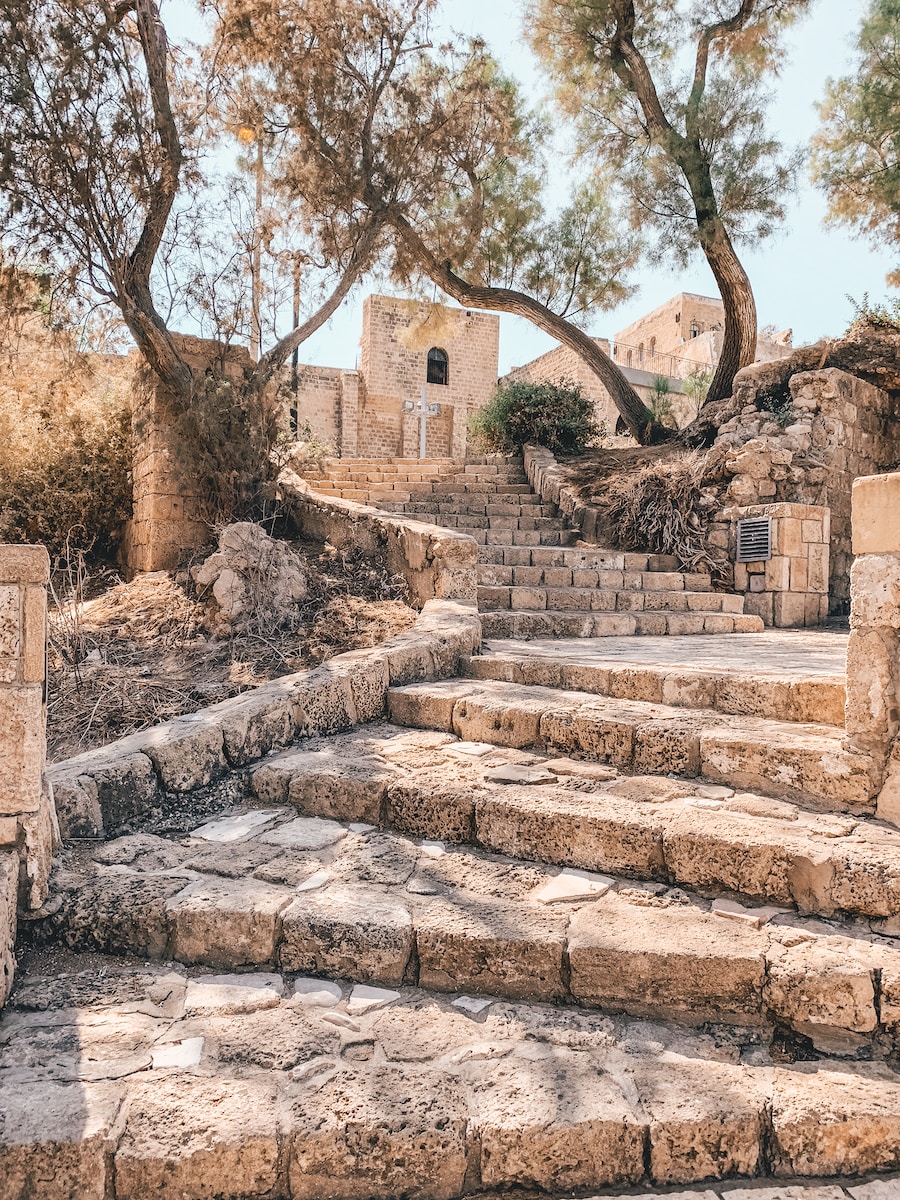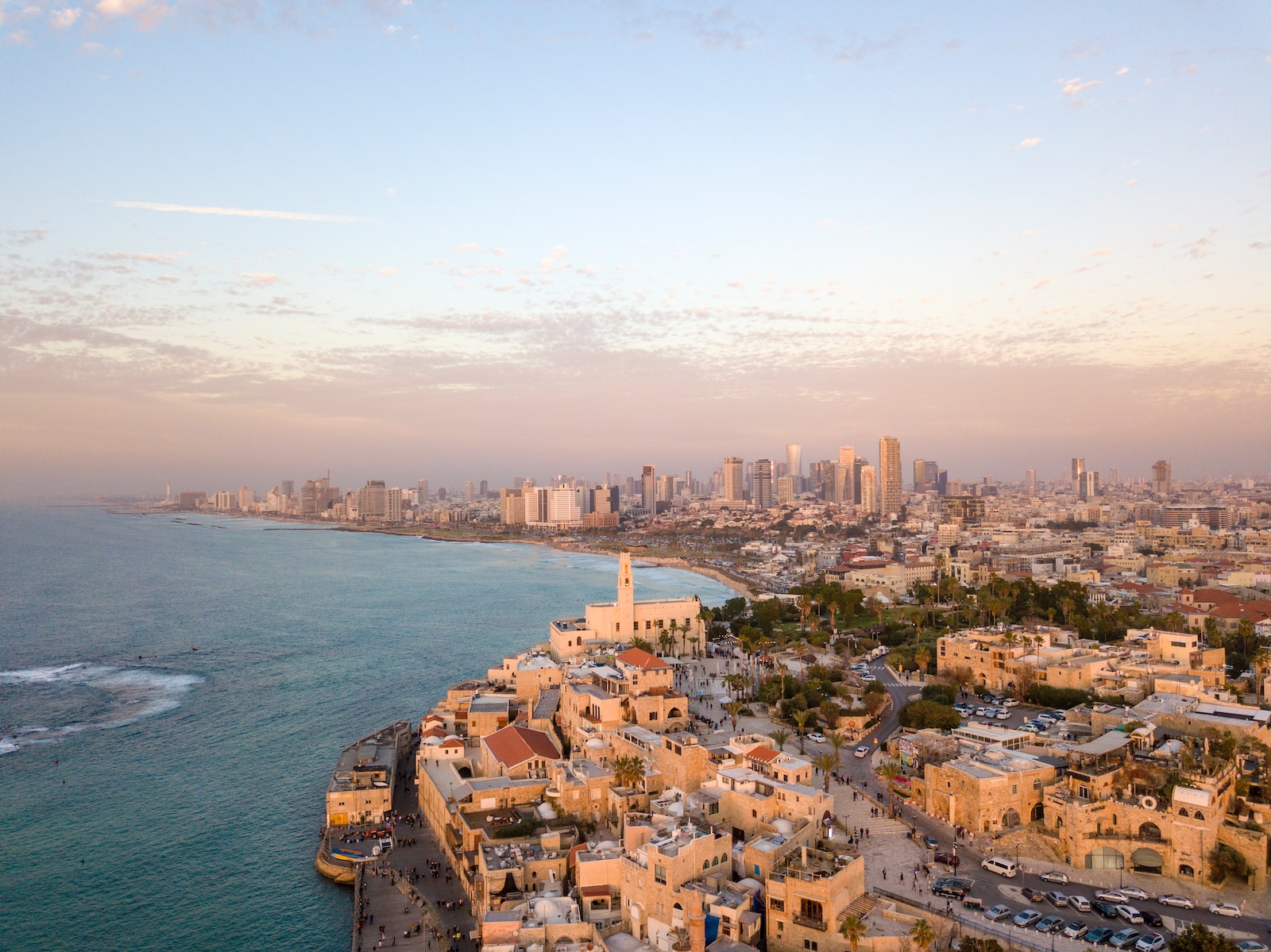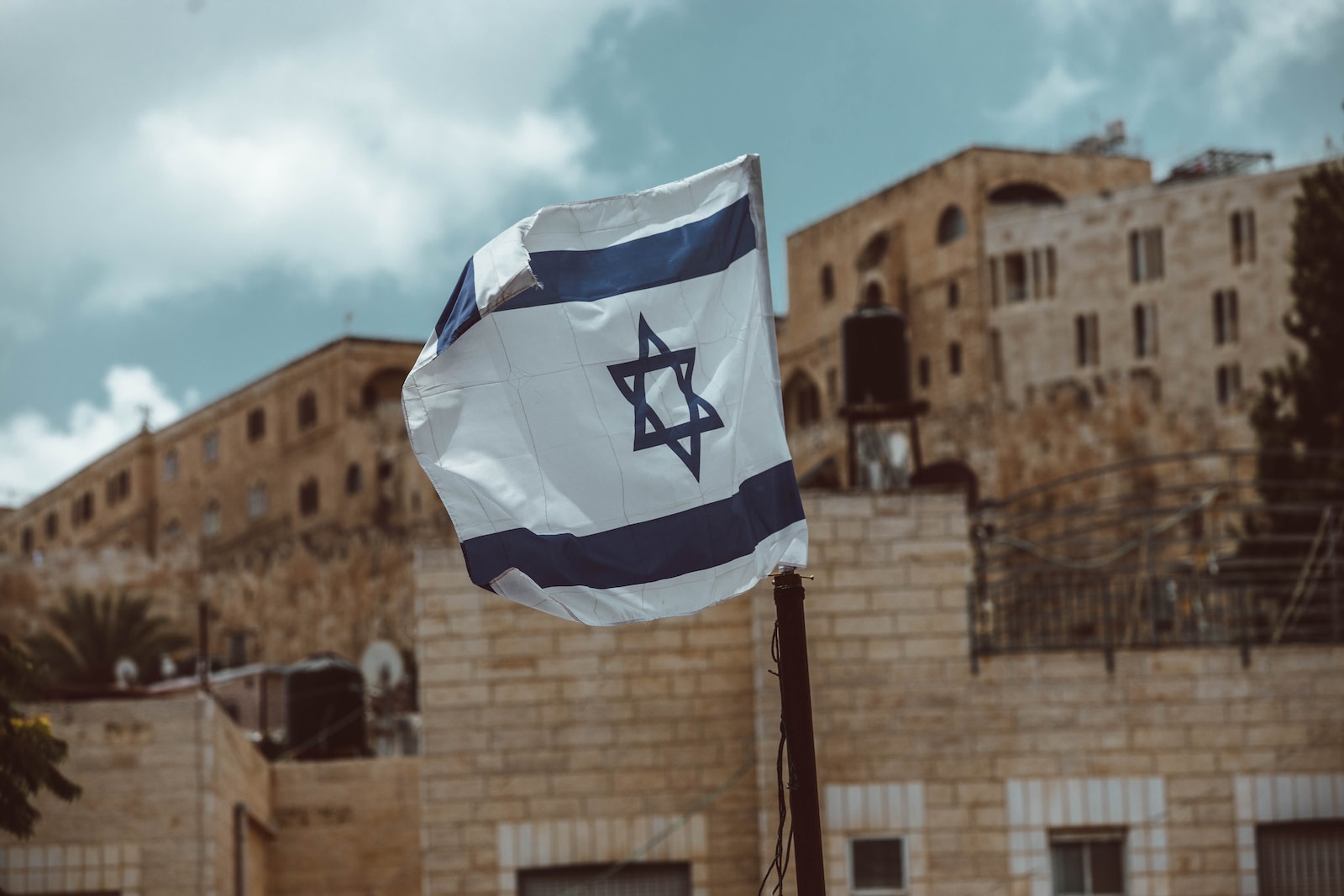Introduction: The Significance of Praying for the Peace of Jerusalem in Current Times
Jerusalem, the holy city, holds immense historical and cultural importance in the context of Israel. It has been a center of religious devotion and a focal point for people of different faiths for centuries. The city of Jerusalem is deeply rooted in the hearts and minds of the people of Israel, symbolizing their identity, heritage, and spiritual connection.
Psalm 122:6 (NIV) emphasizes the significance of praying for the peace of Jerusalem: “Pray for the peace of Jerusalem: ‘May those who love you be secure.'” This verse highlights the importance of seeking peace and security for the city through prayer. It is a call to action, reminding individuals of their responsibility to support the well-being and prosperity of Jerusalem.
In this article, we will explore why attacking Israel in the current times is considered folly and foolhardy in view of the call to pray for the peace of Jerusalem in Psalm 122:6. By examining the historical context of attacks on Israel, understanding the meaning behind praying for the peace of Jerusalem, and discussing the potential consequences of attacking Israel, we can gain a deeper understanding of the significance of seeking peace in the region.
Historical Context of Attacks on Israel
Throughout its history, Israel has faced frequent attacks from various adversaries. The land of Israel has been a battleground for numerous conflicts and power struggles. From ancient times to the present day, neighboring nations and groups have sought to assert control over the region, leading to a long history of conflict.
One significant example of attacks on Israel is the Arab-Israeli conflict, which has spanned decades. The establishment of the State of Israel in 1948 led to a series of wars and ongoing tensions between Israel and its Arab neighbors. These conflicts have resulted in loss of life, displacement of people, and a constant state of insecurity for the Israeli population.
The geopolitical factors and conflicts that have contributed to attacks on Israel are multifaceted. Territorial disputes, religious differences, and ideological conflicts have all played a role in driving hostility towards Israel. The historical context of attacks on Israel highlights the challenges the country has faced in maintaining its security and preserving the well-being of its people.
Understanding the Call to Pray for the Peace of Jerusalem
Psalm 122:6, as written in the NIV version, states, “Pray for the peace of Jerusalem: ‘May those who love you be secure.'” This verse carries a profound message for the people of Israel and believers around the world. Jerusalem holds a special place in the hearts of Jews, Christians, and Muslims alike, representing a spiritual and cultural center for these faiths.
Jerusalem is not merely a physical city but a symbol of peace and unity. It is a place where people from different backgrounds come together to worship, celebrate, and seek divine guidance. The call to pray for the peace of Jerusalem is a reminder of the importance of seeking harmony and security in the city.
The act of praying for the peace of Jerusalem goes beyond individual faith. It is a collective responsibility, a plea for divine intervention, and a commitment to support the well-being of the city and its people. It is an expression of love, compassion, and solidarity with the people of Jerusalem, who long for security and peaceful coexistence.
One example of the significance of Jerusalem as a symbol of peace and unity is the interfaith efforts that take place in the city. Despite the conflicts that have plagued the region, there are organizations and initiatives that bring together people of different faiths to promote dialogue, understanding, and cooperation. These efforts demonstrate the shared desire for peace and the belief that Jerusalem can be a beacon of hope and reconciliation.
#SacredPlea #Psalm122:6 #PeaceofJerusalem #CalltoPrayer #LoveandSecurity #DivineIntervention #HistoricalSignificance #GlobalHarmony #GlobalPrayer #ContemporaryRelevance #PeaceEfforts #CityofJerusalem #ReveredHolySite #SpiritualEndeavor #LoveforJerusalem #SecurityPromise #InterconnectedWorld #GlobalUnity #HarmoniousCoexistence #PrayersforPeace
The Spiritual and Emotional Connection to Jerusalem
The people of Israel have a deep spiritual and emotional connection to Jerusalem. For thousands of years, Jerusalem has been the spiritual capital of the Jewish people, the place where their most sacred sites, such as the Western Wall and the Temple Mount, are located. It is a city steeped in history, filled with stories of faith, resilience, and devotion.
The emotional bond between the people of Israel and Jerusalem is not limited to religious significance. Jerusalem represents the cultural and national identity of the Jewish people. It is a symbol of their historical roots, their struggles, and their aspirations for security and peace. The attachment to Jerusalem is deeply ingrained in the collective memory and consciousness of the Jewish people.
The emotional connection to Jerusalem extends beyond the Jewish community. Christians and Muslims also hold Jerusalem in high regard, considering it a holy city with significant religious sites. For Christians, Jerusalem is associated with the life of Jesus Christ, while for Muslims, it is the site of Al-Aqsa Mosque, the third holiest site in Islam. The shared reverence for Jerusalem among different faiths further emphasizes its importance as a city of peace and unity.
The Importance of Collective Prayer for Peace
Praying for the peace of Jerusalem is not just a symbolic gesture; it has the potential to bring about tangible benefits. Collective prayer has been shown to have a positive impact on individuals and communities, promoting unity, empathy, and a sense of shared responsibility. When people come together in prayer, their intentions and energies align towards a common goal.
One example of the power of collective prayer is the annual Jerusalem Prayer Breakfast, which brings together people from around the world to pray for the peace of Jerusalem. This event serves as a platform for dialogue, understanding, and interfaith cooperation. It demonstrates the belief that prayer can transcend religious and cultural boundaries, fostering a sense of unity and shared responsibility for peace.
Collective prayer for the peace of Jerusalem can contribute to stability and resolution in the region. It creates an atmosphere of hope, compassion, and goodwill, which can have a ripple effect on individuals and communities. By praying for the peace of Jerusalem, individuals are reminded of their role in promoting understanding, reconciliation, and peaceful coexistence.
The Significance of Praying for Jerusalem in the Current Situation
In the current times, Israel faces numerous challenges and tensions. The Israeli-Palestinian conflict, territorial disputes, and geopolitical complexities contribute to a fragile and volatile situation. Praying for the peace of Jerusalem can play a significant role in promoting stability and resolution.
The act of praying for the peace of Jerusalem in the current situation goes beyond the immediate context of the conflicts. It is a call to action, urging individuals to actively participate in the pursuit of peace and security in the region. Prayer serves as a reminder of the shared responsibility to seek peaceful alternatives, engage in dialogue, and support peaceful initiatives.
Prayer has the power to transform hearts and minds, to foster understanding and empathy. By praying for the peace of Jerusalem, individuals cultivate a mindset of compassion and reconciliation. It encourages them to seek peaceful dialogue and constructive engagement as means to resolve conflicts.
In a time of escalating tensions and violence, collective prayer can have a unifying effect. It brings together people from different backgrounds and beliefs, reminding them of their shared responsibility to pursue peace. Prayer can be a catalyst for positive change, transforming attitudes and promoting peaceful coexistence.
The Consequences of Attacking Israel in Light of Psalm 122:6
Attacking Israel in defiance of the call to pray for its peace carries significant consequences. Such attacks not only endanger the lives and well-being of the Israeli people but also perpetuate a cycle of violence and hinder the possibilities of peaceful resolutions.
One example of the consequences of attacking Israel is the potential escalation of conflicts. History has shown that acts of aggression often lead to retaliatory measures, resulting in further violence and instability. Attacking Israel in disregard of the call to pray for its peace can have far-reaching effects, exacerbating tensions and causing suffering for both Israelis and Palestinians.
Moreover, attacking Israel in defiance of the call to pray for its peace undermines the global community’s perception of peace efforts. It sends a message that violence is an acceptable means of achieving political objectives, undermining the progress made towards peaceful resolutions. It also damages the prospects for dialogue, understanding, and reconciliation.
The consequences of attacking Israel extend beyond the immediate conflict. They have the potential to damage the global community’s perception of peace efforts in other parts of the world. If the international community witnesses the disregard for peace in Israel, it may undermine the credibility of peace-building initiatives elsewhere, hindering progress towards global stability.
In light of these potential consequences, it is crucial to consider the call to pray for the peace of Jerusalem before resorting to attacking Israel. Seeking peaceful alternatives, engaging in diplomatic negotiations, and supporting initiatives that promote dialogue and understanding are crucial steps towards creating a more secure and harmonious future for the region.
The Importance of Praying for Peace in Jerusalem
Prayer has played a significant role in promoting peace and reconciliation throughout history. There are numerous examples of conflicts being resolved through collective prayers and the power of faith. Praying for peace in Jerusalem is an act of faith and a demonstration of the shared responsibility to support peaceful resolutions.
One notable example of the impact of prayer in conflict resolution is the Good Friday Agreement in Northern Ireland. After decades of sectarian violence, political leaders and community representatives came together to negotiate a peace agreement. Throughout the process, prayer and faith played a vital role in fostering understanding, forgiveness, and reconciliation.
Prayer has the power to transcend boundaries and bring people together. It creates a space for reflection, introspection, and the recognition of shared humanity. By praying for peace in Jerusalem, individuals contribute to a global effort to maintain stability, foster understanding, and promote peaceful coexistence.
Supporting Peaceful Measures in Israel
In order to ensure the security and well-being of Israel, it is essential to advocate for diplomatic negotiations and peaceful resolutions. Resorting to attacks only perpetuates violence and hinders the possibilities of peaceful coexistence. International initiatives and efforts aimed at maintaining peace in Israel should be supported and strengthened.
One example of supporting peaceful measures in Israel is through diplomatic engagement. Diplomatic negotiations provide a platform for dialogue and compromise, allowing conflicting parties to find common ground and work towards a peaceful resolution. The international community plays a crucial role in supporting and facilitating these negotiations, providing guidance and assistance where needed.
Economic means can also be utilized to support peaceful measures in Israel. By promoting trade, economic cooperation, and development initiatives, individuals and nations can contribute to the stability and prosperity of the region. Economic stability can create an environment conducive to peaceful coexistence and dialogue.
International organizations and NGOs also play a vital role in supporting peaceful endeavors in Israel. These organizations provide humanitarian aid, promote dialogue between conflicting parties, and work towards the resolution of disputes. By supporting these initiatives, individuals can actively contribute to the promotion of peace and security in the region.
Promoting Understanding and Dialogue
Open communication and dialogue between nations are crucial in resolving conflicts peacefully. By fostering understanding and empathy, individuals can transcend differences and find common ground. Constructive engagement and mutual respect are essential in promoting reconciliation and peaceful coexistence.
Promoting understanding and dialogue requires active participation and a commitment to listening and learning from one another. It involves setting aside preconceived notions and engaging in open and honest conversations. By seeking to understand the concerns and perspectives of all parties involved, individuals can contribute to the resolution of conflicts and the establishment of lasting peace.
One example of the power of understanding and dialogue is the Oslo Accords, signed by Israel and the Palestine Liberation Organization in 1993. These agreements were the result of intensive negotiations and a commitment to peaceful resolutions. They demonstrated that through dialogue and understanding, seemingly insurmountable differences can be addressed and compromises can be reached.
The Global Responsibility to Support Peace
Maintaining peace in Israel is not solely the responsibility of the people and the government of Israel. The global community shares a responsibility to support peace in the region. The stability of one nation has an impact on the stability of the world as a whole. Collective efforts and international cooperation are necessary to ensure a peaceful future for Israel and its neighbors.
Global responsibility for supporting peace in Israel can be demonstrated through various means. By advocating for peaceful resolutions in international forums, individuals and nations can contribute to the promotion of dialogue and understanding. Supporting peacekeeping missions and providing humanitarian aid are also ways to actively support the stability and security of the region.
The global community can also support peace in Israel by addressing the root causes of conflict and working towards long-term solutions. This includes addressing issues such as poverty, inequality, and political instability that can contribute to tensions and violence. By addressing these underlying factors, individuals can contribute to the creation of a more peaceful and just world.
Addressing Concerns and Opposition
In considering the effectiveness of prayer in conflict resolution, it is important to acknowledge and address concerns and opposition. While prayer alone may not solve complex conflicts, it plays a vital role in promoting peace by fostering understanding, empathy, and a sense of shared responsibility. Prayer is a catalyst for positive change, inspiring individuals to seek peaceful alternatives and engage in dialogue.
One common concern regarding prayer is its perceived passivity. Some argue that prayer alone is not enough to bring about tangible change and that more active measures are necessary. While it is true that prayer must be accompanied by action, it is important to recognize the power of prayer in shaping attitudes and inspiring individuals to work towards peace.
Another concern often raised is the complexity of the Israeli-Palestinian conflict. The conflict is deeply rooted in historical, political, and social factors, making it challenging to find a resolution. However, the call to pray for the peace of Jerusalem transcends the complexities of the conflict. It reminds individuals of the importance of seeking peace and security and the potential consequences of resorting to violence.
Addressing concerns and opposition requires open and respectful dialogue. It involves listening to different perspectives, acknowledging the complexities of the conflict, and finding common ground. By engaging in constructive conversations, individuals can gain a deeper understanding of the issues at hand and work towards peaceful resolutions.
Conclusion: Praying for Peace and Security in Israel
In conclusion, the call to pray for the peace of Jerusalem, as expressed in Psalm 122:6, holds great significance in the current times. Jerusalem’s historical, cultural, and spiritual importance in the context of Israel cannot be understated. Understanding the historical context of attacks on Israel, the meaning behind praying for the peace of Jerusalem, and the potential consequences of attacking Israel sheds light on the importance of seeking peace in the region.
Praying for the peace of Jerusalem is an act of faith, hope, and solidarity. It is a call to action, urging individuals to actively contribute to the well-being and security of the region. By supporting peaceful measures, promoting understanding and dialogue, and recognizing the global responsibility to support peace, individuals can play a part in creating a more peaceful and secure future for Israel and its neighbors.



